Censored but unstoppable: How male desire and grievances go viral in China
Chinese authorities have set out another campaign to stamp out online negativity, now with the men from the lower rungs of society its target. Lianhe Zaobao journalist Zhang Guanghui takes a look at why talk of “Android”, “Apple”, “sexual repression” and “ligong (力工) show hand” has come under the authorities’ cross hairs.
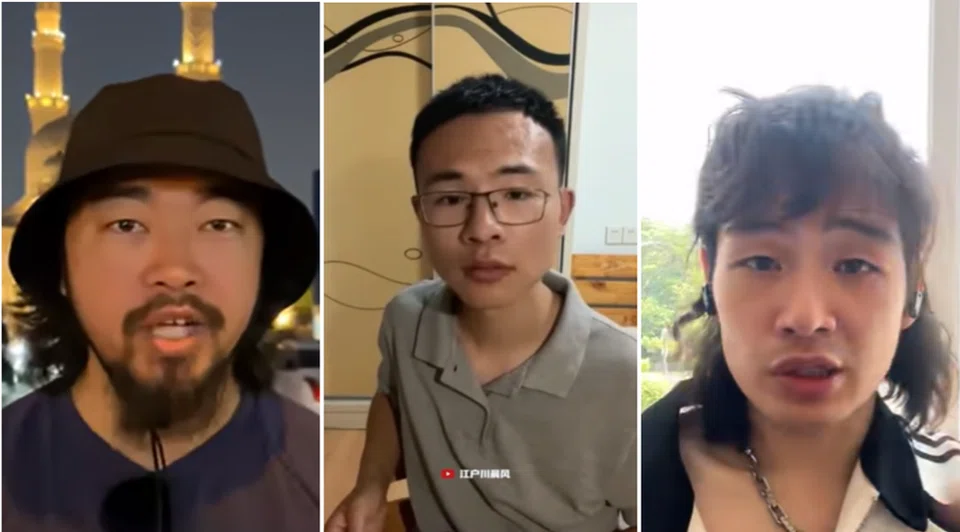
After Chinese online celebrity Hu Chenfeng, famous for his “Android people” and “Apple people” memes, had all his online accounts suddenly suspended in September, Wenxi (pseudonym), a self-professed “die-hard fan” of Hu, has continued to publish his old videos online. Within a month, Wenxi gained thousands of followers and more than a million views.
Wenxi, 30, runs a business in a southern China coastal province. He told Lianhe Zaobao that he “finds great joy” from making the videos, and even “loses track of time” doing so. He said, “Like many of Hu’s fans, I hope his ban is lifted so that he can start streaming again.”
In Hu’s theory, “Android” is a synonym for low-end and poor quality, while “Apple” denotes the opposite.
Plight of the male underclass
On 22 September, Chinese authorities launched a new round of the “Clear and Bright” campaign — an initiative to foster a “healthy online ecosystem” — targeting those accused of spreading negativity online. This latest crackdown hit Hu and several accounts discussing the so-called “three main theories” circulating on the Chinese internet, which became the campaign’s primary focus.
The “three main theories” under scrutiny are Hu’s “Apple–Android theory”, Zhou Lifeng’s “sexual repression theory”, and Douyin user “Hao Shixiong Dai Meng’s” (好师兄戴梦) “ligong (力工) show-hand theory”.
Hu’s “Apple–Android theory” categorises people and objects by mobile operating systems, implying that foreign goods are superior to Chinese ones. Zhou’s “sexual repression theory” attributes a wide range of relationship and personal issues to sexual repression. Meanwhile, the “ligong show-hand theory” criticises Chinese men who deplete their savings to marry, reflecting the growing pressures surrounding masculinity and social status.
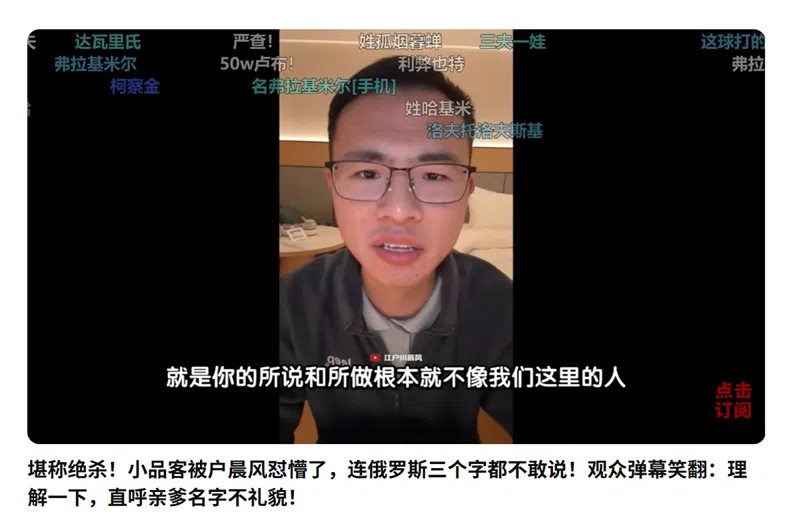
Some netizens have even gone a step further to surmise the “three main theories” into the saying, “Ligong is a sexually repressed Android user”, and claim that it reflects current social realities in China, especially the plight of the male underclass. This resonated with many people and caught the authorities’ attention.
At the same time that Hu’s online accounts were suspended, the phrase “ligong mindset” was banned on the Chinese internet, and content related to the “sexual repression theory” became inaccessible on certain online platforms.
Fans: Hu’s videos mirror reality
Wenxi, who started following Hu last year, suspects that he could have been banned by the government for “stirring unrest and creating anxiety”.
In Hu’s theory, “Android” is a synonym for low-end and poor quality, while “Apple” denotes the opposite. His labels like “Android people” and “Apple qualifications” rapidly generated plenty of controversy.
Prior to this, Hu rose to fame through videos testing the buying power of low-income earners throughout China and distributing money on the streets to those at the lowest rungs of society. He once shot a video to challenge the buying power of elderly people who received monthly pensions of only 100 RMB (US$14). Hu’s account was temporarily suspended on numerous occasions after viewers raised politically sensitive questions during his livestreams.
“‘Why do I still struggle to make ends meet despite working so hard? Why is the pension disparity so big?’ Many people are asking these questions, but few have the space — or the courage — to voice it.” — Wenxi, a fan of Hu Chenfeng
Wenxi felt that before Hu, the old folks and low-income workers living in small Chinese county towns were “invisible online”. By dragging the populous demographic into the limelight, Hu forced Chinese society to face up to their existence and plight.
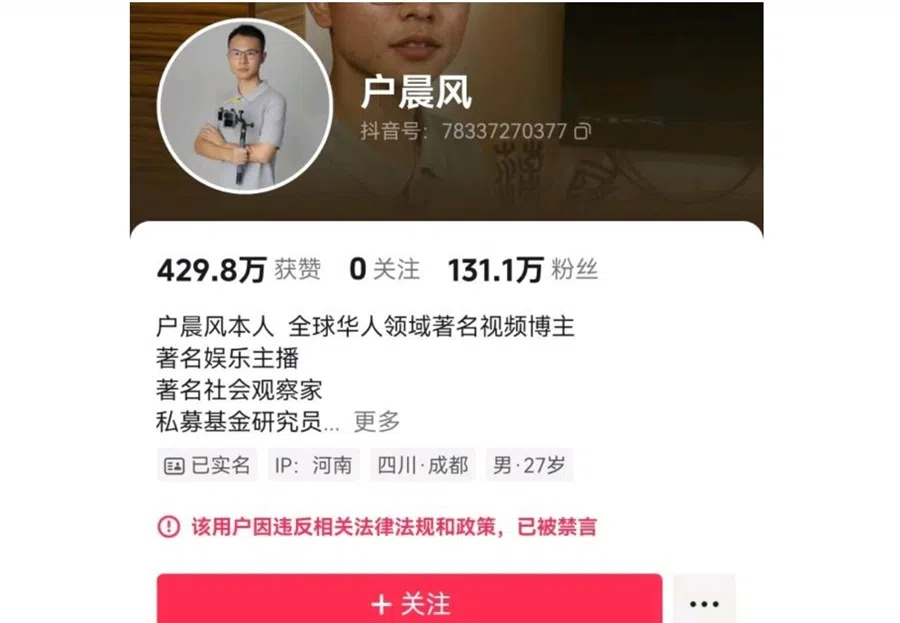
Wenxi added that many enjoy Hu’s videos simply because “it reflects their lives”. He said, “‘Why do I still struggle to make ends meet despite working so hard? Why is the pension disparity so big?’ Many people are asking these questions, but few have the space — or the courage — to voice it. Hu put these difficult and very real questions on the table. When we watch his videos, we are somewhat expressing our confusion and unhappiness through him.”
Repressed desires and restricted futures
Similarly, Zhou Lifeng gained popularity through his videos on China’s social underclass and his livestreams on Bilibili. He frequently responds to relationship problems posed by male netizens from the perspective of sexual repression, popularising the concept into an internet meme.
After the “Clear and Bright” campaign began, Zhou clarified during a livestream that he had not created any theories himself, but was merely “borrowing from what others had summarised”.
As for the “ligong show-hand theory”, it was proposed by Douyin user “Hao Shixiong Dai Meng”, who sells high-priced relationship advice online. The term “ligong” refers to manual labourers, while “show hand” is a poker term meaning to bet everything at once. The theory describes men whose primary goal in life is marriage and parenthood, and who mistakenly believe they can secure love and commitment through money alone.
After the “ligong show-hand theory” became popular, netizens started mocking people with traditionally desirable traits like working hard, enduring hardship and saving money as having a “ligong mentality”.
A framework chart of the “three main theories” that has been circulated online claims that they depict the plight of the male Chinese underclass with its repressed biological urges, inadequate finances and limited social mobility...
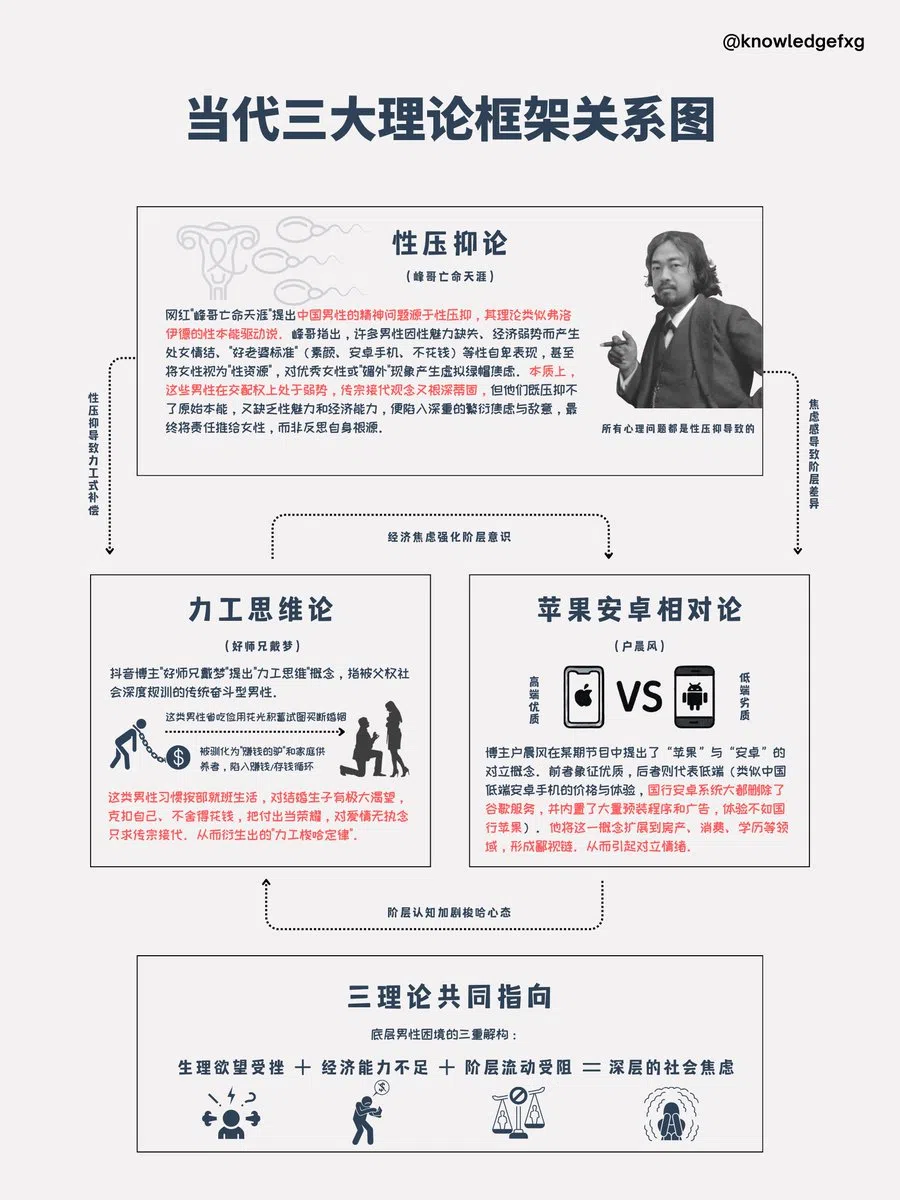
A framework chart of the “three main theories” that has been circulated online claims that they depict the plight of the male Chinese underclass with its repressed biological urges, inadequate finances and limited social mobility, laying bare deep-rooted social anxieties.
The Cyberspace Administration of China (CAC) said its latest “Clear and Bright” campaign in September targets online content that stokes extreme antagonism between groups or spreads exaggerated pessimism through popular memes and catchphrases — behaviour that can encourage others to follow suit.
Not outright ban
It should be noted that the clampdown on the “three main theories” varied in intensity. While all of Hu’s social media accounts were banned, his “Apple–Android theory” can still be openly discussed online; content on Zhou’s “sexual repression theory” is no longer accessible on some social media platforms but his online accounts are not suspended; and while “ligong show hand” became a banned internet phrase, the “Hao Shixiong Dai Meng” account was not suspended.
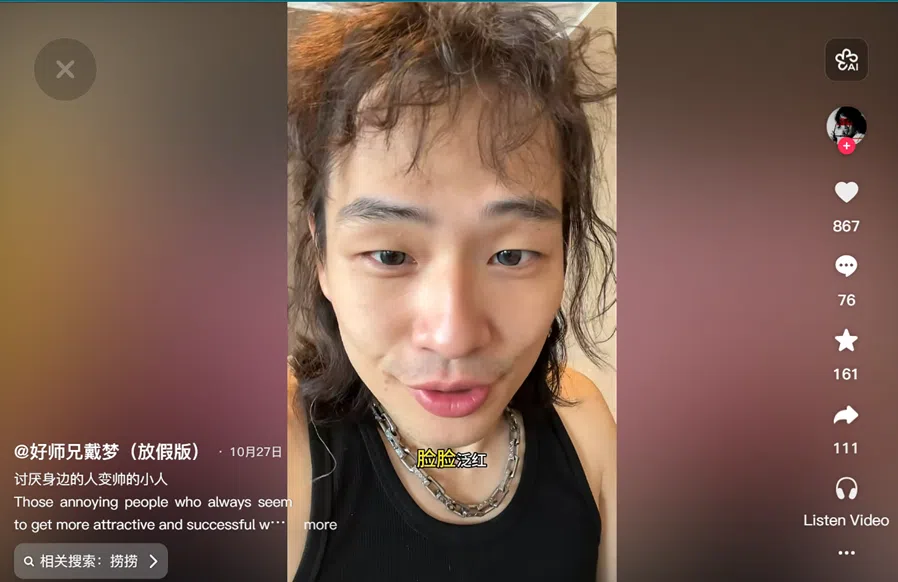
Taiwanese writer Zhou Yongsheng, who studied in mainland China, told Lianhe Zaobao that the situation reflects a tug-of-war between authorities trying to curb the spread of these ideas and online platforms chasing traffic. While the authorities aim to contain “negative” content through targeted measures, platform operators employ counter-strategies to keep content related to the “three main theories” trending.
If the government truly wanted to halt all such discussions, banning key phrases would be enough. Instead, Liu noted, “It’s not an outright ban — more like a rap on the wrist.”
Zhou added, “Unless the government takes an unrelenting stance, it’s unlikely that platform operators will fully comply — especially since the ‘three main theories’ don’t criticise the central government or top officials. More likely, the government’s aim is to temper public sentiment rather than eliminate these discussions entirely.”
When interviewed, Liu Lipeng, a former content moderator for a Chinese social media platform, said it is often difficult to tell whether users are deliberately spreading negative sentiment or simply airing grievances. If the government truly wanted to halt all such discussions, banning key phrases would be enough. Instead, Liu noted, “It’s not an outright ban — more like a rap on the wrist.”
Liu said the government likely isn’t concerned with the “three main theories” themselves, but seeks to curb discussions on the economy, youth unemployment, and declining academic credentials. He added that, although the “lying flat” meme is older and less attention-grabbing, social media accounts promoting such lifestyles were still suspended during the current “Clear and Bright” campaign.
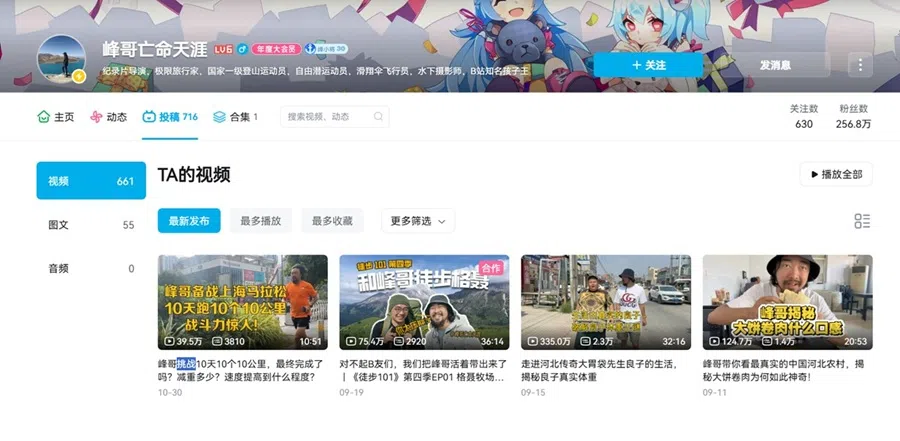
Writer Zhou noted that Bilibili and several official media outlets produced a 2020 May Fourth Youth Day video, “Hou Lang” (后浪), showcasing the younger generation’s wealth, technological progress, and bright future. However, amid China’s economic downturn, optimism has given way to discussions of poverty relapse and “run philosophy” (润学) — an online term for emigrating to developed countries — with the “three main theories” filling the resulting ideological void.
Wenxi remarked that the comments section of every Hu video he posted resembles a large-scale “life rant session”. He said, “Genuine positivity is having the courage to confront problems head-on and resolving them. Reporting the good and ignoring problems, and engaging in empty flattery is ‘feigned positivity’. A healthy society needs more than one voice.”
This article was first published in Lianhe Zaobao as “映射中国底层焦虑 网红“三大理论”遭官方打击”.





